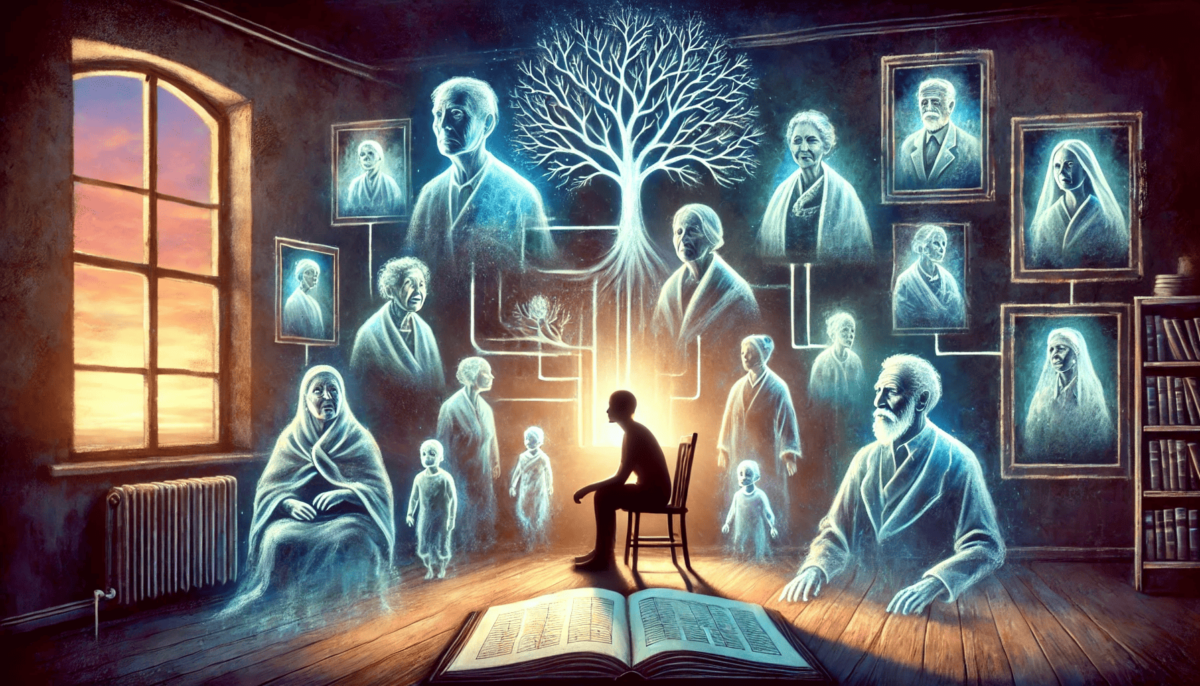Many families keep in their memory mysterious stories about their ancestors, which are passed down from generation to generation. They are often a source of pride or anxiety, including legends of ancestral curses. Such stories reflect human fears and hopes, sometimes greatly exaggerated by the imagination. Modern technologies and archival data make finding relatives a fascinating journey that reveals unique aspects of the family’s past.
Such myths can influence the views and decisions of the family. This is especially noticeable when the belief in a generic curse forms attitudes or expectations in everyday life. Often, however, these stories are just symbolic metaphors created to explain complex events. The psychological aspect of such myths is particularly important, as they help to find meaning in the past and prevent future mistakes.
Through family stories, people seek to understand their place in the world. These narratives not only connect generations, but also form a unique family identity. By revealing the secrets of our ancestors, they help us better understand our heritage and connect with those who lived long before us.
Origin of family legends
Family stories often start with real events that grow in detail over time. Gradually, facts are mixed with fiction, creating unique narratives. The symbolic meaning of such stories becomes more important than their authenticity. This helps families keep in touch with the past and pass on values.
The transmission of family stories takes place through oral narration or recorded memories. Often such stories are adapted to the current realities and needs of the family. New generations add their own interpretations, which makes the story even more vivid. Thus, each generation re-creates its own version of the family legend.
Interest in family stories increases especially during periods of crisis or change. At such times, people turn to the experience of their ancestors for support or advice. Family myths become a way of understanding what is happening through the prism of the past. This helps to cope with difficulties and find a way out of difficult situations.
Psychological impact of family myths
Family legends have a significant impact on the psychological state of family members. This is especially true for stories related to ancestral curses or tragic events. To better understand their impact, it is worth highlighting the main aspects:
- forming fears and limiting beliefs;
- strengthening the sense of responsibility to your ancestors;
- striving to meet the expectations of the family;
- search for personal boundaries in the context of the past.
Such stories can both motivate and create additional pressure. For example, a belief in a generic curse can cause undue anxiety. However, some people find in these narratives the strength to overcome difficulties. It all depends on the interpretation and attitude to family stories.
It is important to remember that the influence of myths is often associated with the emotional coloring of stories. The more vivid and dramatic a story is, the more it is remembered and affects the psyche. People tend to see such stories as part of their own personal destiny. This makes them particularly important for self-identification.
The role of family stories in personality formation
Family myths and legends play an important role in the development of each person’s personality. They shape ideas about the world, influence values, and even determine life goals. A person often sees such stories as part of their own destiny. This helps them better understand their roots and place in life. However, it is important to be able to separate reality from fiction, so as not to become a hostage to other people’s fears.
Stories about ancestors can inspire or limit the abilities of their descendants. For example, a belief in a generic curse can create barriers to self-realization. But if one learns to see such stories as metaphors rather than absolute truth, one can benefit from them. The main thing is to find a balance between respect for the past and freedom of choice.
Such narratives also help to preserve the link between generations. They convey not only facts, but also emotions that make the family’s story alive and meaningful. Through these stories, people learn to understand their parents and ancestors. This creates a sense of belonging to something bigger than your own life.
How to work with family stories
For family legends to be useful, it is important to learn how to interpret them correctly. It is necessary to ask questions about how reliable these stories are and what role they play in the life of the family. An important step is separating facts from speculation, which helps you look at the situation objectively. This approach avoids the negative impact of myths on the psyche.
One way to work with family histories is to document them. By recording the stories of older generations, you can save them for posterity in a more accurate form. It also helps you analyze past events from a present-time perspective. This process contributes to a better understanding of the context and essence of what is happening.
Finally, it is important to discuss family stories with other family members. This helps you see different points of view and create a more complete picture. The exchange of opinions enhances the sense of unity and cohesion within the family. Thus, myths and legends cease to be a source of fear and become a tool for growth.
Questions and answers
Family myths can create a person’s fears, limit their beliefs, or, on the contrary, inspire them to achieve their goals. Their impact depends on how a person interprets these stories.
Yes, to do this, it is important to learn to separate fact from fiction and perceive such stories as metaphors, not absolute truth. It is also helpful to discuss these topics with other family members.
Preserving family histories helps to pass on cultural heritage to descendants, strengthen the sense of belonging to the family and better understand their roots. It also helps to preserve the unique identity of the family.

